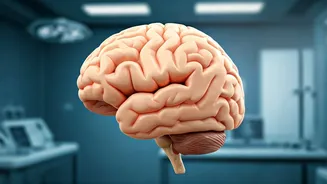The Brain's Resilience
The human brain, a marvel of biological engineering, possesses an incredible capacity for adaptation and change, often referred to as neuroplasticity.
This means the brain can reorganize itself by forming new neural connections throughout life. While aging naturally brings cognitive decline, it is now understood that certain activities can stimulate the brain, building resilience. Regularly engaging in mental exercises helps improve cognitive function and counteracts age-related deterioration. Activities that challenge the brain promote the growth of new neurons and strengthen existing connections. Moreover, the practice of mental exercises can significantly enhance memory, attention span, and overall cognitive agility.
Memory Games
Memory games are specifically designed to bolster the brain's ability to retain and recall information. These games require active engagement and the deliberate storage of data, thereby training the brain's memory centers. One effective example involves remembering a sequence of objects or words. Start by creating a list of items; then, try to recall them in order, increasing the list's length over time. Another method is the 'memory palace' technique. In this, you visualize a familiar location and associate different pieces of information with specific spots in that location. This method transforms abstract data into a more accessible, visual format. These games not only enhance memory capacity but also boost focus and attention to detail. Regular practice can lead to measurable improvements in cognitive performance, making everyday tasks easier to manage.
Mindful Meditation
Mindful meditation is a powerful practice that supports brain health by enhancing attention, focus, and emotional regulation. This technique involves paying attention to the present moment, observing thoughts and feelings without judgment. Even a few minutes of daily meditation can reduce stress, which can significantly damage the brain over time. Regular practice boosts grey matter, the brain region responsible for functions such as memory and decision-making. Techniques include focusing on the breath, body scan meditations, and guided visualizations. By training the mind to remain present, meditation strengthens cognitive control, reduces mind-wandering, and fosters a sense of calm. The cumulative benefits of consistent meditation include improved cognitive function, enhanced emotional well-being, and a greater overall quality of life.
Learn Something New
The human brain thrives on learning new skills and acquiring knowledge. Engaging in new activities stimulates brain plasticity, encouraging the formation of new neural pathways and connections. The best part is the variety in which you can choose to learn something new. For example, learning a new language has been shown to improve memory and cognitive abilities, stimulating multiple brain regions simultaneously. Taking up a musical instrument is also highly beneficial, as it requires complex coordination and enhances auditory processing. Even something as simple as starting a new hobby, like painting or cooking, can provide substantial cognitive advantages. Actively learning new information keeps the brain active, resilient, and better equipped to handle cognitive challenges. The continuous stimulation of learning helps keep the brain's circuits in top condition, leading to improved mental agility and sustained cognitive health.
Puzzle Solving
Puzzles are excellent mental exercises, especially crosswords, Sudoku, and jigsaw puzzles. Such activities stimulate different cognitive functions like problem-solving, logical reasoning, and spatial awareness. Solving these puzzles demands that you actively engage and challenges your brain. Crosswords and word puzzles enhance vocabulary and language skills, while Sudoku sharpens logical thinking and number sense. Jigsaw puzzles improve spatial reasoning and visual-motor skills. The mental workout from puzzles strengthens neural connections and boosts cognitive flexibility. Additionally, the sense of accomplishment after solving a puzzle can increase self-esteem and reduce stress. Regularly incorporating these activities into your routine is a fun way to keep your mind sharp and effectively manage cognitive decline with age.















